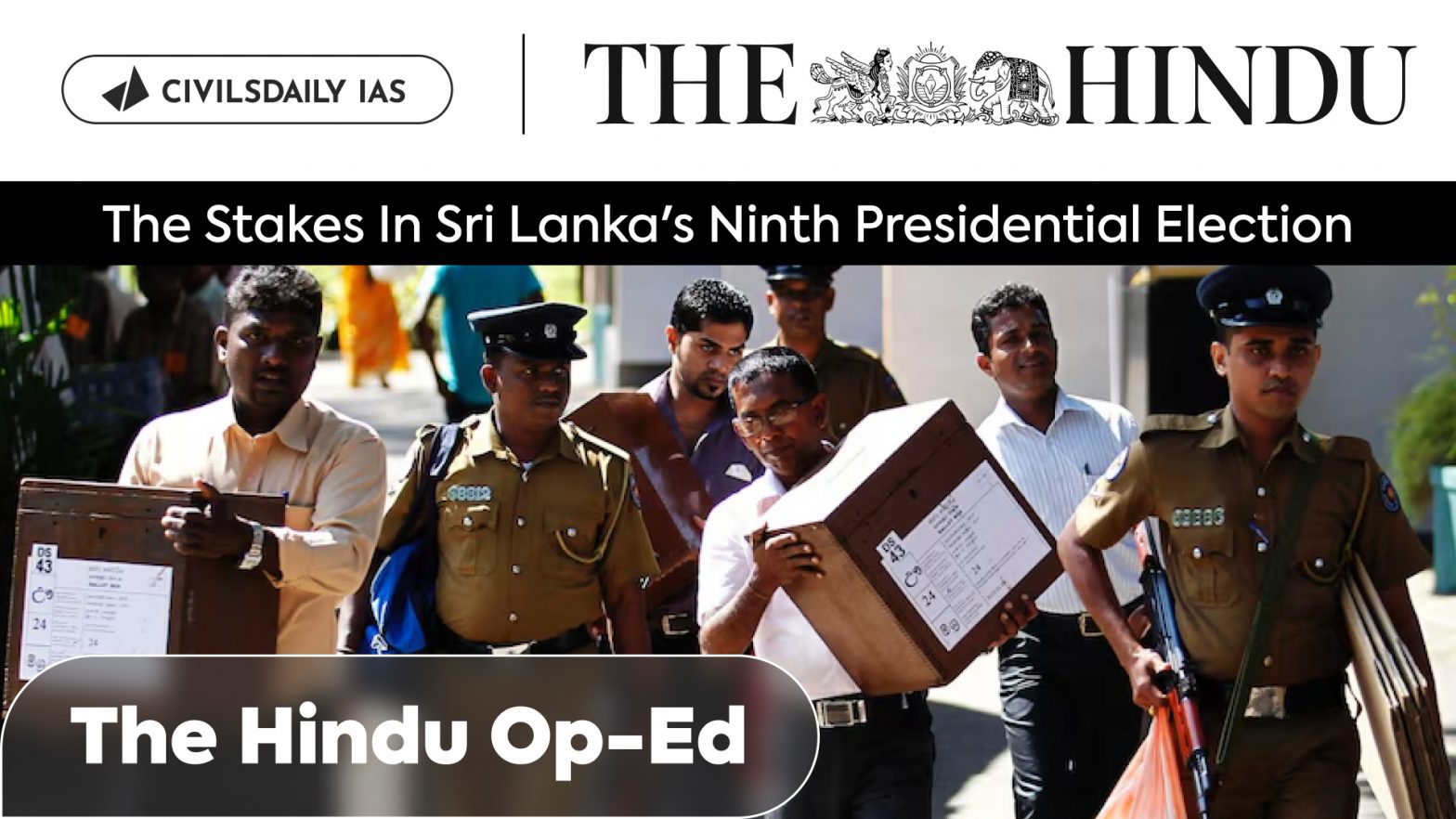| PYQ Relevance: Q). ‘India is an age-old friend of Sri Lanka.’ Discuss India’s role in the recent crisis in Sri Lanka in the light of the preceding statement. (UPSC CSE 2022) Q). In respect of India — Sri Lanka relations, discuss how domestic factors influence foreign policy. (UPSC CSE 2013) |
Mentor’s Comment: The preference for leftist and rightist ideologies in global geopolitics is influenced by a variety of factors, each reflecting distinct political, economic, and social dynamics. In times of economic distress, leftist ideologies often resonate with populations facing inequality and poverty. They advocate for social welfare programs, wealth redistribution, and increased government intervention in the economy to address systemic issues.
The recent presidential elections in Sri Lanka, held on September 21, 2024, marked a significant turning point in the country’s political landscape. Anura Kumara Dissanayake, the leader of the leftist National People’s Power (NPP) coalition and chief of the Janatha Vimukthi Peramuna (JVP), emerged victorious, signaling a departure from the traditional political parties that have dominated Sri Lankan politics for decades.
_
Let’s learn!
Why in the News?
There are some significant political developments following the recent ninth presidential election held on September 21, 2024.
- It marks the first time in Sri Lanka’s history that a presidential election required a second round of counting to determine the winner.
- This change reflects a significant shift in the electoral landscape since the introduction of the executive presidency in 1978.
What does leftist victory signify for Sri Lanka’s political landscape?
- Political Paradigm Shift: Dissanayake’s leadership marks the first time a president with a pronounced leftist ideology has taken office, indicating a potential shift towards more state intervention in the economy. It signals a rejection of the traditional parties that have dominated Sri Lankan politics for decades.
- Public Sentiment and Economic Crisis: Dissanayake’s campaign focused on anti-corruption and economic reform, resonating with voters who blame corruption for the nation’s economic collapse.
- Geopolitical Implications: The new administration’s leftist leanings may influence Sri Lanka’s foreign relations, particularly its ties with China and India, as Dissanayake is perceived as potentially favoring China.
What are the future Governance challenges?
- Need for Parliamentary Majority: Although elected president, Dissanayake faces the challenge of securing a parliamentary majority to implement his policies effectively.
- Balancing Act: He must navigate between leftist ideals and the need for foreign investment and cooperation, particularly with entities like the IMF, which has provided crucial financial support.
- Addressing Tamil Aspirations: Engaging with the Tamil minority and addressing their calls for greater autonomy will be critical for national unity and stability.
- Systemic Change: the Leftist party has promised to address systemic corruption and may seek to abolish or reform the executive presidency, reflecting a desire for democratic renewal.
| Implication on India: • Economic Impact: Sri Lanka’s share in India’s total exports has declined from 2.16% in FY15 to just 1.3% in FY22. India relies heavily on the port of Colombo for global trade, with approximately 60% of India’s transhipment cargo handled by the port. • Strategic Implications: India sees the crisis as an opportunity to counter China’s influence in Sri Lanka, which has been a concern due to Sri Lanka’s proximity to China. India has provided $4 billion in financing facilities to Sri Lanka. • Strengthening Bilateral Relations: Although India’s support during the crisis has generated goodwill, underlying anti-India sentiment and the need for Sri Lanka to balance relations with multiple major economies pose challenges to deeper engagement. • Refugee Influx: India has witnessed a large influx of ethnic Tamil community refugees from Sri Lanka during past political or social crises. |
How will this address the ongoing economic crisis?
- Renegotiation of IMF Terms: The leftist leaders have committed to renegotiating the austerity measures imposed by the IMF.
- Further, they also have plans to adjust taxation policies, including raising the personal income tax exemption threshold and removing VAT on essential goods.
- Production-Based Economy: The present government envisions transforming into a production-based economy. This shift aims to reduce reliance on imports and enhance local production capabilities.
- Bilateral Debt Agreements: Sri Lanka inherits a complex debt situation but aims to seek better terms for existing agreements with international creditors, including China and India. Hence they will prioritize negotiations that enhance fiscal sustainability while addressing public needs.
Opportunities for India:
- Tea Exports: Amid the decline in Sri Lanka’s tea production, India is well-positioned to capture markets significantly in countries that import orthodox tea, such as Iran, Turkey, Iraq, China, and Canada.
- Textile Exports: Indian apparel exporters are receiving orders from the UK and Latin American countries where Indian textiles had very little or no presence before the crisis.
Conclusion: As the first leftist candidate to be elected president, he faces the daunting challenge of steering the nation through its worst economic crisis while navigating complex geopolitical dynamics and entrenched political interests.

